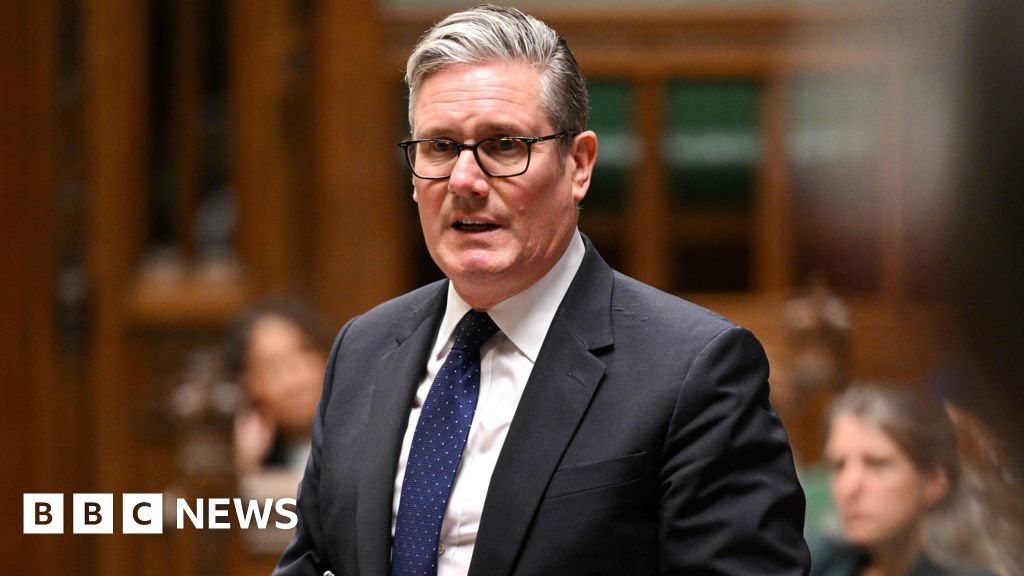Kate McGough
Education reporter, BBC News

 Family handout
Family handout
Sue's daughter Matilda (centre) waited 72 weeks for her education, health and care plan
Children and young people with special educational needs are facing longer waits for support plans with fewer than half issued on time last year, according to new government data.
Only 46% of education, health and care plans (EHCPs) were issued by local authorities within the 20 week deadline in 2024, the Department for Education (DfE) said on Thursday morning.
It said local authorities are "overwhelmed" and it will set out "wide-ranging reform" in the autumn.
The new data comes as parents and charities expressed concerns that the changes could involve replacing EHCPs altogether.
Sue lives on the Wirral, in Merseyside, with her two daughters - Matilda, 11, and seven-year-old Isadora. The family has just secured an EHCP for Matilda after a process lasting 72 weeks - nearly a year longer than the 20 week deadline.
"I now fully appreciate that parents [of children with SEND] are stuck in fight or flight mode. I've been fighting so long," Sue said.
Matilda is in her last year of primary school and has been getting extra support for suspected autism as well as ADHD.
Sue says her daughter "really struggles with change" and is worried that the delay means she has missed the chance of a managed transition into secondary school.
Wirral Council said it is processing more than twice the number of requests for EHCP needs assessments than before the Covid pandemic.
It said it had recently invested an extra £2.8m per year into improving its Special Educational Needs and Disabilities (SEND) services and had doubled the number of caseworkers.
However, Sue is worried that after a long fight to get a plan in place, the government might decide to scrap or change EHCPs during promised reforms in the autumn.
She says this would be "devastating" for parents like her.
"For Matilda, it would have to be a complete rethink of mainstream education works," Sue said.
"She wouldn't cope with the class sizes. She's got a lot of sensory issues, she can't wear school uniform.
"Behaviour policies in mainstream schools aren't flexible enough for students who display complex and challenging distress behaviours.
"Without an EHCP to tell people what to do there's no guarantee that child will get the support to help them progress."
The number of children and young people in England with an EHCP has increased to 638,745, the highest number since they were introduced a decade ago and a nearly 11% rise on last year.
An EHCP is a legal document outlining the support for special educational needs that a child or young person is entitled to.
It could outline the need for one-to-one assistance, specialist equipment or other tailored support, and it is issued by local authorities after an assessment of the child's needs.
Education secretary Bridget Phillipson has previously said she would like to see more children supported in mainstream schools, and has put aside £740m to help schools adapt.
At the moment, 43% of young people with EHCPs are already in mainstream schools.
There are nearly 1.3 million pupils currently getting support for special educational needs in schools in England without an EHCP, but many parents value the legal rights to support that the plans set out and fight hard to get them put in place.
Katie Gauche, of the Disabled Children's Partnership, said the idea of scrapping plans will "terrify families".
The group, which represents charities, campaigners and parents, said the legal right to an individual plan must remain a key part of any reformed SEND system.
"The reality parents and children face now is that an EHCP is the only way they can get an education," Ms Gauche said.
"Most requests for EHCPs come from schools who rely on them to support children's health and social care needs.
"Any conversation about replacing these plans should focus on how children's rights to an education will be strengthened, without the red tape and without the fight."
The National Audit Office said last year that the SEND system as a whole "wasn't financially sustainable" and was not delivering better outcomes for children and young people, despite big increases in high-needs funding over the last 10 years.
A deal holding £3bn of SEND deficits off local authorities books has just been extended to 2028, but local authorities are still under huge financial pressure because of rising needs.
In response to Thursday's figures, Tim Oliver, chair of the County Councils Network, said "comprehensive reform" was needed and should include "clearly defined support" for families.
"Despite this record expenditure - which importantly is being artificially kept off local authority balance sheets - we recognise that there is widespread dissatisfaction with the system," he said.
"Councils are facing a deluge of requests for support, so whilst the commitment to reform is important, government can ill-afford to get it wrong."
On Thursday, education secretary Bridget Phillipson said "too many children are not having their needs identified at an early enough stage".
She said this creates "a vicious cycle of overwhelmed local services and children's support needs escalating to crisis point".
"Through our Plan for Change, we're improving things right now, and will break this vicious cycle with wide-ranging reform," she added.
"We've already invested £740 million to create more places for children with SEND in mainstream schools, we're increasing early access to speech, language and neurodiversity support, and we'll set out our full plans to improve experiences for every child and family in the autumn."

 5 hours ago
2
5 hours ago
2

















































